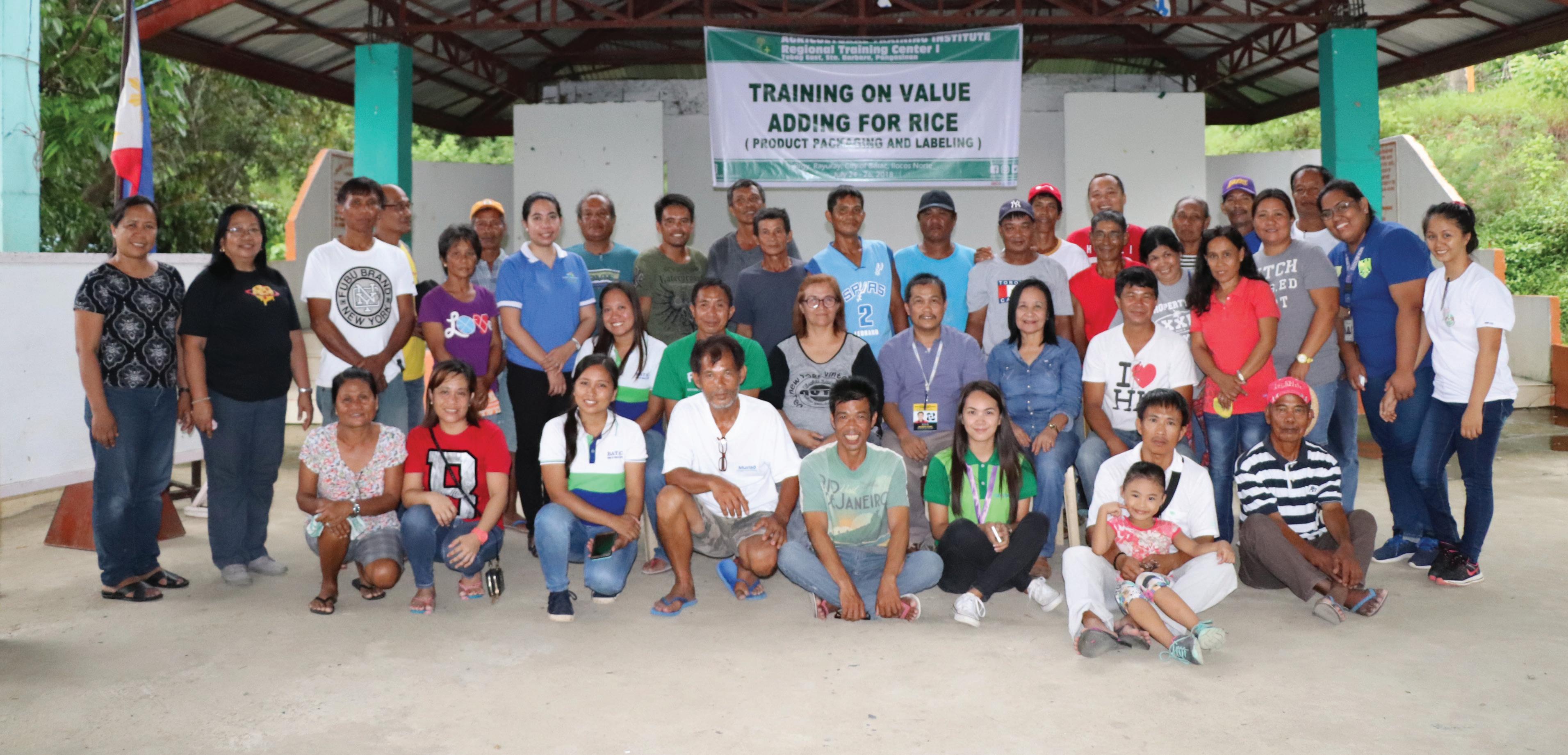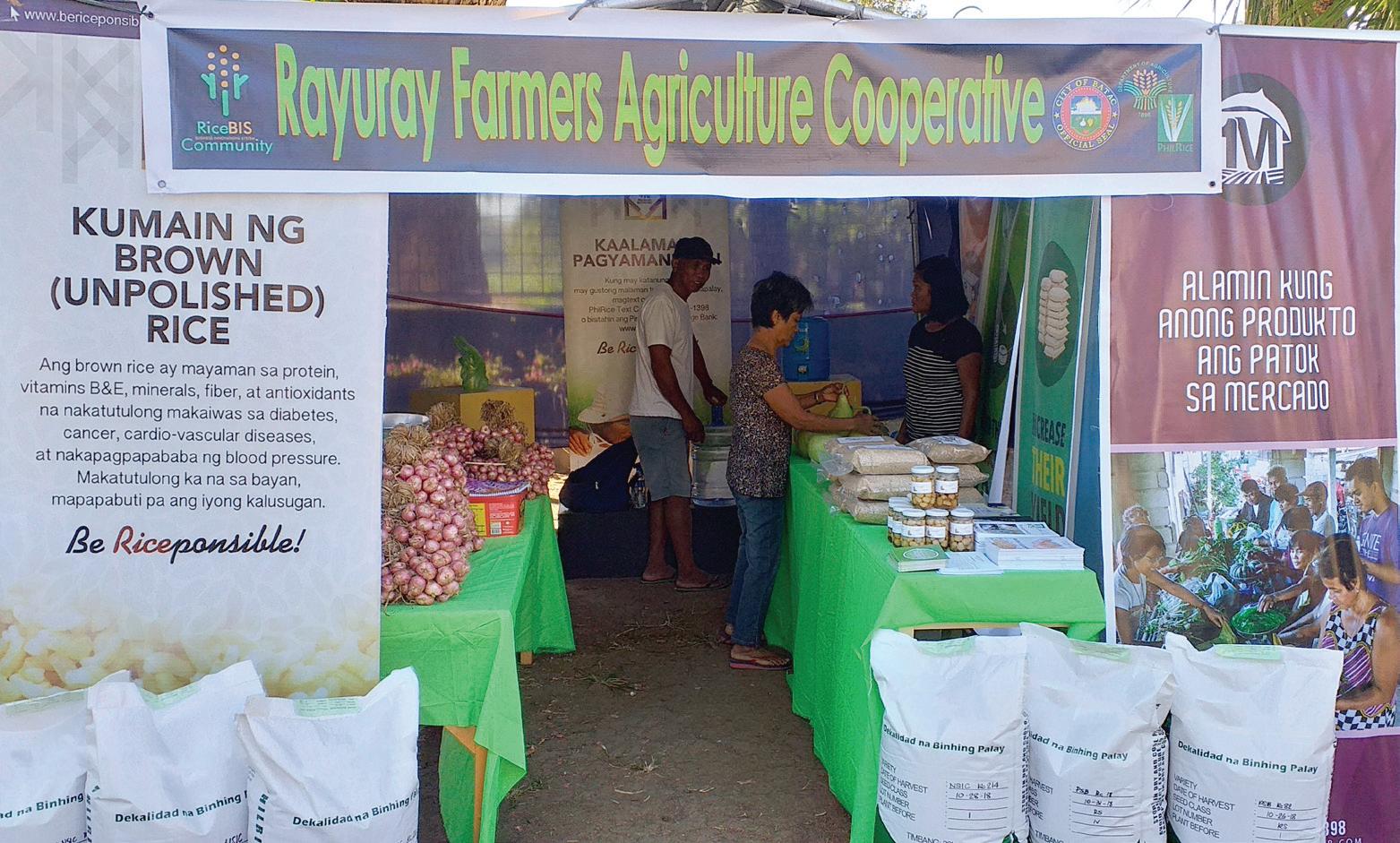
5 minute read
RICEBIS BATAC: DREAM BINDS YOUNG COOPERATIVE
from Magazine 2021 1Q
by LearnPH
RFAC claims that it owes its achievements to the local government units and the agencies that assisted them in accessing training grants and other marketing opportunities.
RiceBIS BATAC
Advertisement
Dream binds young cooperative
CHARISMA LOVE B. GADO-GONZALES
In Rayuray, Batac City, Ilocos Norte, dreams flourish amidst the pandemic.
Having to start the year with a lockdown due to a COVID-19 case in their community, Guillermo “Guilli” Quemquem, manager of the Rayuray Farmers’ Agriculture Cooperative (RFAC), holds on to a vision as he prepares for their coop’s meeting after the community quarantine. Someday, he said, their cooperative will be known as world’s supplier of brown rice.
From a sale of P84,000 in 2019 that dipped to P30,000 in 2020, Manong Guilli said the coop’s dream is still possible, burning their hearts. Supported by the RiceBIS project, the brown rice they produce had already reached the United Kingdom and United States as pasalubong from vacationing relatives. “Sales were slowed down due to restricted activities. But as a cooperative, we can rise!” the 58-year-old farmer is optimistic.
Already a farmer at only 12 years old, Manong Guilli said cooperative is a farmer’s pillar. Together, he said, they can increase the quality of their produce and gain more income from farming. Through RiceBIS, 48 coop members learn modern rice farming and entrepreneurial skills. Through the coop, they enjoy good palay price, which is a peso higher per kg than the prevailing price. Members can also rent the coop’s truck, multi-cultivator, and 4-wheeled tractor cheaper than other service providers.
“Traders get rich from our produce. So why not, we make the most out of our produce for us to have more income,” the former barangay councilor said.
Rayuray RiceBIS community is born
As former chairperson of their village, Manong Guilli frequented the PhilRice Batac office for development projects he can introduce to his fellow farmers. When their farms were selected as site to visit in a Technical Cooperation Project, he became more persistent in asking implementers for activities rice growers can be involved in.
Although eager and willing, the prospective farmer-participants of the RiceBIS project were hesitant when implementers met them in 2017.
“We used to have limited perceptions about cooperatives. We thought coop memberships are only for loans, and
that coops do not last. The seminars and training we attended while we were being organized gave us a better mindset about cooperatives,” he said.
The elected councilor who recently resigned to focus on his family and the cooperative admitted that maintaining a coop is not easy.
“Like any organization, there are members who have different opinions. Some members would also leave the group. Those who stay have seen and experienced the benefits of being coop members. Government support is strong in farmers’ cooperatives,” he said.
In April 2019, the members secured a stall to display their products at the city’s public market under the local government unit’s One-Barangay-One-Product initiative, Before the Luzon-wide enhanced community quarantine was effected in 2020, RFAC sold products directly to consumers in Metro Manila through the monthly Producers to Consumers (P2C) trade fair and exhibit in Quezon City—a project of the Ilocos Norte provincial government. The coop also availed of a multi-cultivator from the provincial government. RFAC also partnered with the Department of Science and Technology (DOST) to boost their brown rice enterprise. DOST awarded them a financial and machine grant for their brown rice’s nutritional analysis and improved vacuum packaging machine.
In June 2020, using its community development fund and rice stocks, RFAC even distributed 3kg of rice each to about 200 persons with disabilities and senior citizens affected by the lockdown.
Economic activity triggered
Dr. Mary Ann Baradi, focal person of RiceBIS project in PhilRice Batac, asserted that coop members increased their yield by 580kg/ha in 2020. Their income from rice farming also went up by 51% in 2020 dry season.
“They also learned the importance of value-adding and consolidated marketing, which are manifested in their ventures. From farmers who merely looked at farming as production three years ago, they are now agripreneurs engaged in brown rice, palay trading, milled rice, and custom service,” Mary Ann said.
Mary Ann added that the LGU’s programs on high-quality seeds and fertilizers also contributed to the rice yield increase.
As a cooperative, RFAC members are given opportunities to showcase their products in exhibits and public events.

LEAH D. TAPEC
which gave them the venue to provide a steady supply of brown rice in the area. RFAC then sold packaged brown rice for P65 a kilo and unpackaged at P60/kg. Fruits and vegetables were also offered.
In the same year, RFAC became an accredited National Food Authority (NFA) supplier and sold 5,800kg of dry palay. Their linkage with NFA also helped them avail of a 4-wheeled tractor grant from the DA-Regional Field Office 1 with the support of the local government unit of Batac City. “Gradually, we’re becoming entrepreneurs and better members of our community through RiceBIS. Aside from updating our knowledge in rice farming, some of us have learned the habit of recording. We used to feel that we’ve already earned after selling our rice. Now, some of us have started to put price on the hours we spend on farming and list down our expenses. We learned a lot from this project and we’re grateful,” he said.
We used to have limited perceptions about cooperatives. We thought coop memberships are only for loans, and that coops do not last. The seminars and training we attended while we were being organized gave us a better mindset about cooperatives.
- Guillermo “Guilli” Quemquem, RFAC Manager
From an initial fund of about P44,000 from membership fees and share capital, the coop’s total net assets as of November 2020 have surpassed P2M, which include grants from DA, DOST, Agricultural Training Institute, and Ilocos Norte provincial government.
“They also put up the RFAC Center using their agroenterprise income,” she said.
With the RFAC marketing as one and as they continue to fuel their dream, supplying more brown rice may soon be a
reality. (WITH REPORTS FROM DONNA CRIS P. CORPUZ)








